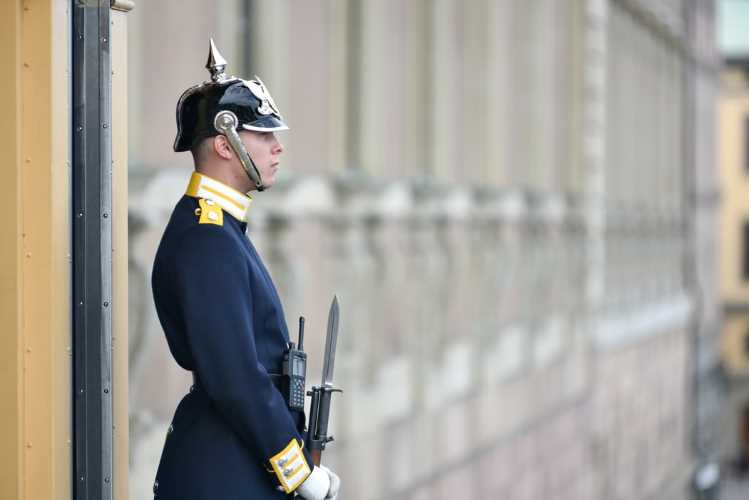
Sweden’s Covid-19 response: When Sweden stood on the other side of the lockdown, a lot of liberals thumped their chest and said they were doing the right thing in upholding liberty (of movement), protecting the economy and responding properly to an illness, which to them was nothing more than a glorified flu. They thought this was a sure shot to herd immunity and at times people even believed that Sweden was close to it. Now the fans have disappeared thanks to the health/economic data from Sweden. The country is still in the top 12 chart for deaths per million (582) from Covid-19. As projected by Swedish fans, nothing really went wrong with the Nordic neighbours even after three months (Norway’s death toll is 51, Finland’s 62 and Denmark’s 114).
All the neighbours are in much better shape after the first wave of the pandemic in terms of economics. Sweden’s GDP shrunk by 8.3%, much worse than Denmark, Norway and Finland. There goes the economic smart move down the drain. The Scandinavian experience with the coronavirus outbreak has proved that Sweden was wrong – both in terms of lives and livelihood.
READ I Kerala enters the critical stage in its fight against Covid-19
If you are a fan of the herd immunity band wagon, just look at the second wave. No community is anywhere close to herd immunity threshold and Sweden is no exception. In its peak, Sweden had a 1,000 cases per day. The weekly average is now back to 500 in the second wave. If there was herd immunity, this graph would never have crossed 50% of the first wave. The country added a third of its first wave count to the second wave already. So, Sweden did not achieve any of the three targets — lives, livelihood and herd immunity.
If you think extreme lockdowns helped the economy, New Zealand will give you a big no. Its economy shrank by 12.2%, much more than Sweden’s. It is New Zealand’s first recession after the global financial crisis. So, New Zealand saved lots of lives (just 5 deaths per million), but at the cost of some GDP growth. Interestingly, New Zealand recorded a steeper drop than neighbouring Australia, where the lockdown was less severe.
READ I Race to Covid-19 remedy: Will the Oxford vaccine fail?
So, you come to the conclusion that there might be a middle path between a strict lockdown and a fully open economy. Surprisingly, it happened in Asia. Taiwan had that strategy and is the poster boy of the Global Covid fight (0.3 deaths per million and 1.4% shrinkage of GDP). But it’s just a small country and doesn’t represent big ones like India, US and Brazil.
Countries that invested heavily on the hybrid strategy of early testing, meticulous contact tracing and strict isolation reaped benefits reasonably well – Taiwan, South Korea and Germany. They did this by preventing many super spreader events unlike the US, UK, France, Belgium Spain and Italy. These five countries have done it as bad as it can get. There are enough bad examples from South America in Brazil, Mexico, Columbia and Peru. Then comes the opaque ones — Russia, China, Iran and Turkey where nobody knows what really has happened.
READ I Covid-19: Pregnancy and childbirth in the times of coronavirus pandemic
Finally, we have the messy combo ones where we had very strict lockdowns for prolonged periods with huge economic fallouts without much success on the epidemic burden. India is the classic example of that combo. We slowed the economy big time, but the lives saved were quite disproportionate and much lower than we should have been given the strict, prolonged nature of the lockdown. India lost 76 lives per million (disputed heavily by the global community on possible grounds of huge under-reporting) which is a moderate success, but the cost of it in terms of GDP was massive. It shrunk by a mammoth 23.9% in the first quarter of 2020, the worst for any country during Covid times. This is just one quarter and we will still see more bloodbath. The Centre for Monitoring the Indian Economy (CMIE), a think-tank, recently reported that at least 6.6 million white collar jobs (this includes even engineers, physicians & teachers) were lost between May and August 2020, the steepest fall ever among salaried workers in India. Just keep your wallet safe. Money will soon become much more precious in India.
There is lot of political trumpeting about the lives saved by strict lockdowns in India, but nobody is comparing India with comparable countries – its neighbours. The lives saved in India are not just by strict lockdowns. It had several other factors such as a relatively younger population, late entry to the rapid growth phase and better knowledge about the virus/treatment options from data reported by countries affected earlier. Some of the credit goes to the lockdown, some to those other factors.
READ I Ageing in times of Covid-19 pandemic
Bangladesh lost 33 lives per million population, Pakistan 29, Afghanistan 37 and Sri Lanka just 0.6, bringing our 76 per million to scale. This will bring the political chest thumping to realistic decibels. None of India’s neighbours had the harsh lockdowns, but they too saved lives bringing it to light the role other factors play in mortality reduction. India may reach 100 to 120 lives lost per million and it still is a moderate position. But it won’t be a great achievement for the Narendra Modi government, given the geography it is in, the young population and the cost the country paid for it. That’s the stark reality.
The lives lost in the massive economic slowdown and the slump in quality of life are the next big threats India will face. These two problems are slowly evolving in India. The country will take at least a decade to recover from the crash. India needs men of character to guide its people to the safe shore on the other side.
(Dr Manu Raj is a pediatrician, clinical researcher and research methodologist based in Kochi.)
Dr Manu Raj is a paediatrician, clinical researcher and research methodologist based in Kochi.


